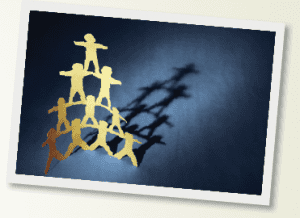(FS9) Supporting Changes and Improvement in Your Franchising System

In franchising, you will always be under the supervision of the franchisor—usually from a far. Their involvement with your will probably be limited to updating system materials, corporate meetings, and checking up when something goes wrong. With that said, it’ll be important to protect yourself and your business by following the rules. There are also other ways the franchisor stays in connect with you.
Field Support Staff in Franchising
Field staff, field agents, field consultants, field representatives, and regional managers are all titles for field support staff that you may come in contact with. They are the troubleshooters in franchising. Franchisors can’t always be at the beck and call of their franchisees. In fact, the bigger the franchise, the less of a chance you’ll probably have to speak with the franchisor directly much at all. Field consultants work on creating relationships with the franchisees to be known as a reliable source of assistance when you need help and specialize in maintaining awesome relationships with all franchisees.
 For better understanding, a field consultant’s main job should be to help franchisees improve the performances of operations. Field consultants should stay in constant communication with the franchisees that they meet with. They should communicate in all forms; email, phone, and face-to-face, maintaining the current status of any franchise or helping problem solve. Field consultants aren’t just for when things go wrong though. In some systems, field consultants are in charge of training new franchisees.
For better understanding, a field consultant’s main job should be to help franchisees improve the performances of operations. Field consultants should stay in constant communication with the franchisees that they meet with. They should communicate in all forms; email, phone, and face-to-face, maintaining the current status of any franchise or helping problem solve. Field consultants aren’t just for when things go wrong though. In some systems, field consultants are in charge of training new franchisees.
A secondary job of field consultants is to conduct regular inspections to make sure that health and safety codes are being followed along with the franchisor’s system. They also discuss any deficiencies they see and make recommendations for improvements in staff, building, or operations. They will comment on things as little as uniforms not being worn by staff to displays being empty or bigger issues. They can also assist on how to improve sales, or if you’re having trouble keeping payroll in order. Remember that a consultant isn’t your enemy, but someone who wants to help you do your job better and make your business more efficient.
Depending on the franchise and the size of it, field visits can happen few and far between. Sometimes field visits can happen immediately if a signal is sent to corporate for help, and sometimes every franchisee is visited on a set schedule after a certain amount of time. In a more mature, sophisticated system, franchisor headquarters obtain information from reports that are sent annually and with those reports, they evaluate the need for a visit and the status of the location. Depending on the industry, the field staff ratio can be as little as 1:8 or as high as 1:100.
Mystery Shoppers in Franchising
This is another way that franchisors keep track of how their franchises are doing without having to invest in sending out field agents or themselves, but to allow themselves to check up on the franchise in a covert way. Mystery shoppers are typically hired to purchase certain services, ask certain questions, and sometimes do certain things. It is their job to note exactly what the franchise looks like, how the employees are dressed and act, and what the service is like that they receive. This helps the franchisor out greatly because the franchisee and their employees don’t know who the mystery shopper is or what they look like, so they can’t prepare ahead of time, which can be one of the pitfalls to field consultants.
Mystery shoppers are reimbursed for their services on the basis that they write down notes for some very specific responses and experiences that they have in the franchise location. After the visit of a mystery shopper, you can usually expect a contact from a field consultant or the franchisor depending on how bad the report was.
Fellow Franchisees in Franchising
Sometimes fellow franchisees are out and about in the system to give attention to one another—think of this as keeping an eye on your sibling to help them along. Don’t be surprised if you’re approached by a fellow franchisee with concerns. You’re all following the same franchise agreement rules, which gives you a bond. No one is trying to be better than anyone else since you’re all part of the same system with your own territory, so never take it in that way. In fact, some of the biggest allies a franchisee can have are their franchisee siblings. When a franchise is poorly run, it’s normal for consumers to just assume it’s an all over problem the company has and that each location isn’t individually owned. This can cause problem for other franchises down the line. When a franchisee comes to another with advice or to try and help, it’s for everyone’s good.
If a franchisee approaches you with a suggestion to help you fix your store and make it fall into compliance, it should be taken into serious consideration and you should try to apply it. Like a field agent, if your store doesn’t fall into compliance, it’s not abnormal for a franchisee to report another to the franchisor for the better of the company. Franchisees are part of your support system and most of them assume that if they look out for you, you’ll be looking out for them too.
If none of the above help you, you can always think of hiring a specialist to get your business into shape. Call industry specialists, take management classes, do whatever you need to do to improve yourself in your weak spot. At the end of the day, the responsibility of running your store flawlessly lands on your lap and has nothing to do with your franchisor. All they did was give you the system.
Continue Reading the Franchise Series 9 With:
- Fellowship Relationships to Expect in Franchising
- Making Changes to Your Franchising Systems
- Building Successful Relationships in Franchising Systems
- Maturing Your Franchising Relationships as Time Passes
- Franchising Research, Development, and Office Support
- Managing System Size or Focus Changes in Franchising
- Working Your Way Through Conflicts That Occur in Franchising
- Reaching Out to Fellow Franchises for Advice
- Joining Advisory Councils and Associations for Franchises
- Bringing the Best To Your Franchises On Your Own
